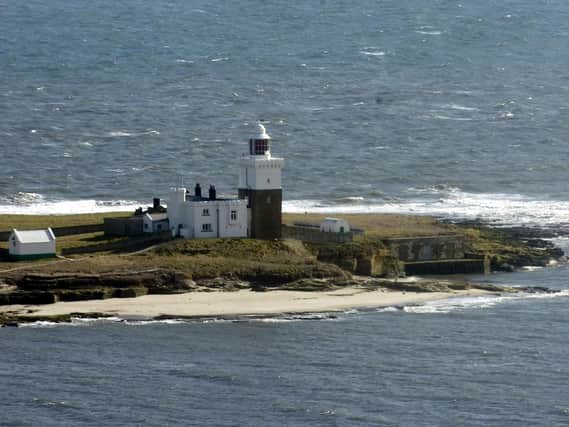'Blue belt' extended to protect Northumberland waters


Today's announcement extends the country's blue belt to cover more than 20 per cent of English waters, providing vital protection for the diverse array of wildlife in our seas.
Off the north Northumberland coast, the three MCZs are Farnes East, an inshore and offshore area incorporating the Farne Islands; Coquet to St Mary's, from Whitley Bay up to Amble and including Coquet Island; and Fulmar, located about 224km off our coast.
Advertisement
Hide AdAdvertisement
Hide AdWelcoming the designation of the new sites, Marine Environment Minister George Eustice said: "As an island nation, the UK is surrounded by some of the richest and most diverse sea life in the world - from the bright pink sea-fan coral colonies off the south-west coast to the great chalk reef stretches in the east.
"It's vital that we protect our marine environment to ensure our seas remain healthy, our fishing industry remains prosperous and future generations can enjoy our beautiful beaches, coastline and waters.
"By designating these new Marine Conservation Zones and creating a blue belt of protected areas around the country, we can better protect our environment through careful marine management in years to come."
The 23 additional sites are the second of three planned phases of MCZs; the first phase covered 3,731 square miles of water over 27 sites, while a third phase of proposed MCZs will be put out to wider public consultation in 2017 and designated in 2018.
Advertisement
Hide AdAdvertisement
Hide AdThe announcement has also been welcomed by a number of campaign groups. Joan Edwards, The Wildlife Trusts' head of living seas, said: "Marine protection is vital to us all, no matter where we live. Our seas provide the oxygen for every second breath we take, the fish on our plates and so much more.
"The designation of 50 Marine Conservation Zones to date is a strong step forward, but there is much still to do. It is vital that appropriate management is implemented as soon as possible. We will continue to work with government to ensure that this happens and to achieve the much-needed ambitious and comprehensive third and final tranche."
Marine Conservation Zones protect a range of nationally important marine wildlife, habitats, geology and geomorphology, and can be designated anywhere in English waters. They were introduced to halt the deterioration of the UK’s marine biodiversity and provide legal means to deliver the UK’s international marine conservation commitments.
Today's announcement supports further work by government to protect the marine environment, as new consultations on Special Areas of Conservation (SACs) for harbour porpoise and Special Protection Areas (SPAs) to protect feeding and bathing areas used by iconic birds, such as spoonbills in Poole Harbour and puffins on the Northumberland coast, are expected to launch later this month. This adds to the 37 SACs and 43 SPAs already designated in English waters.